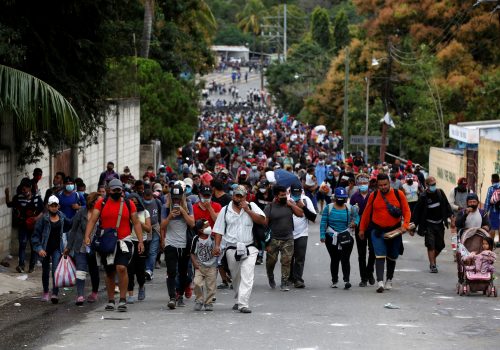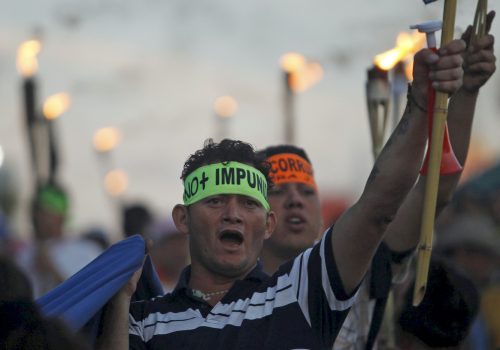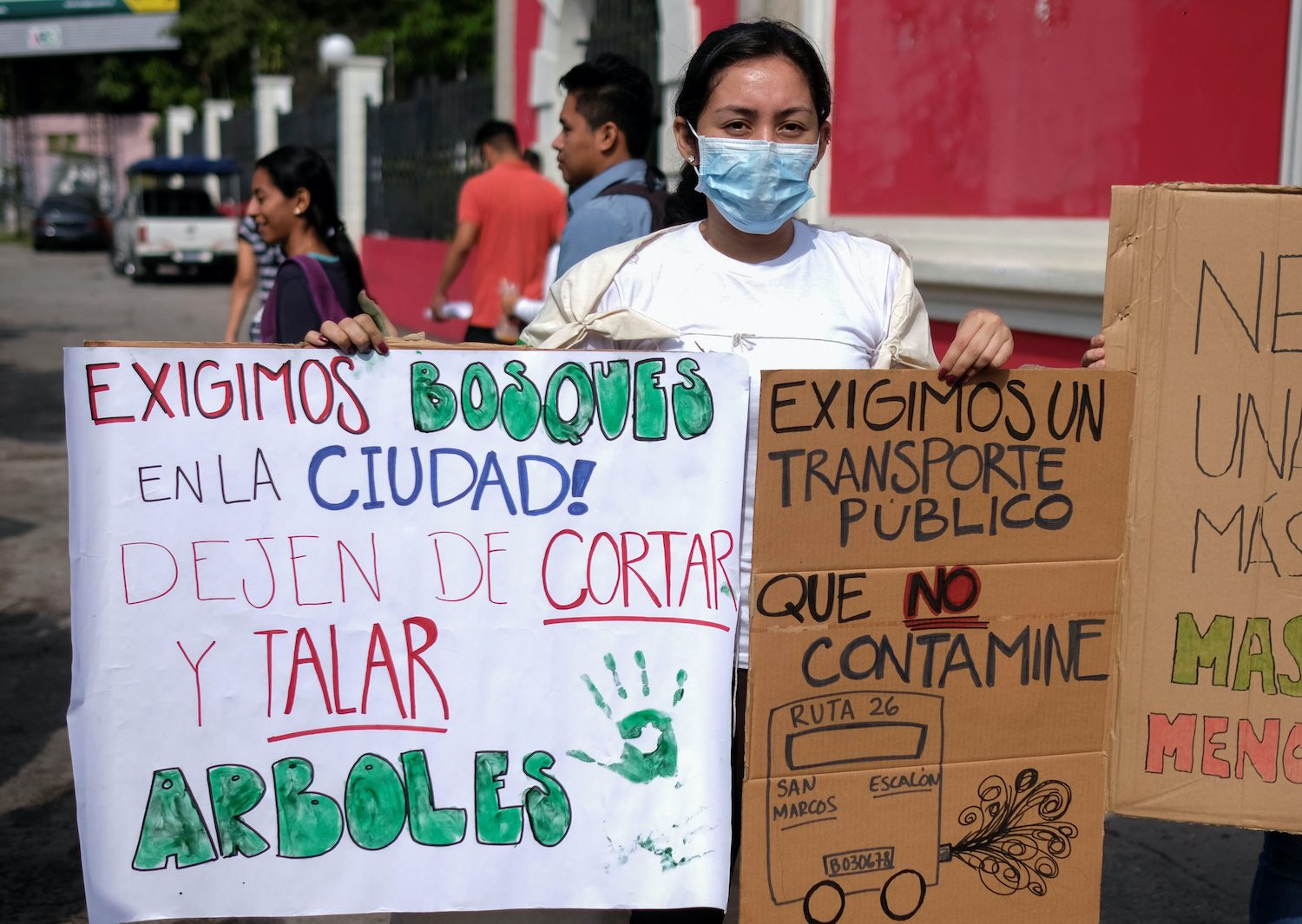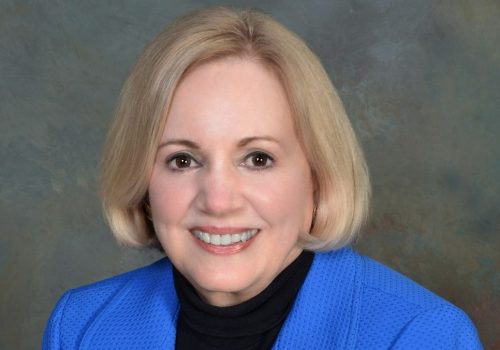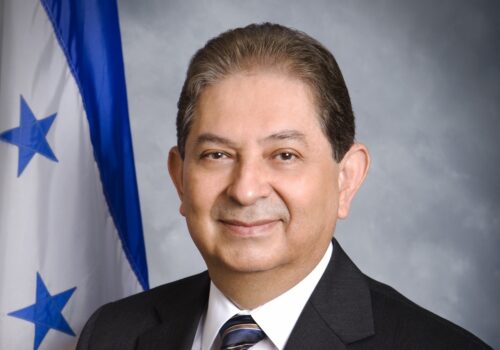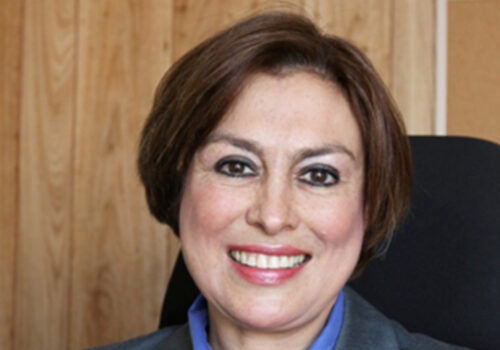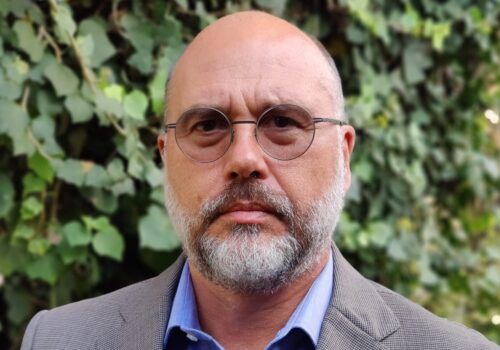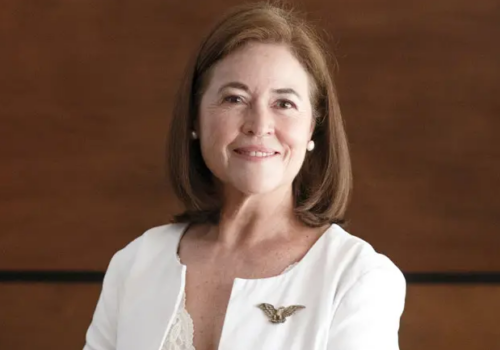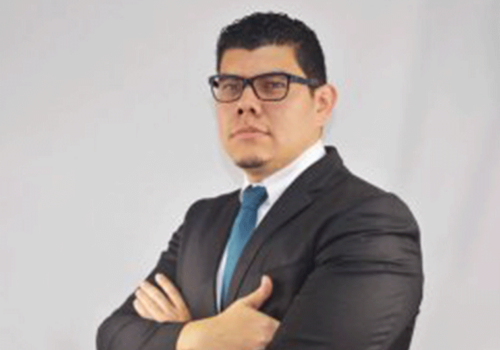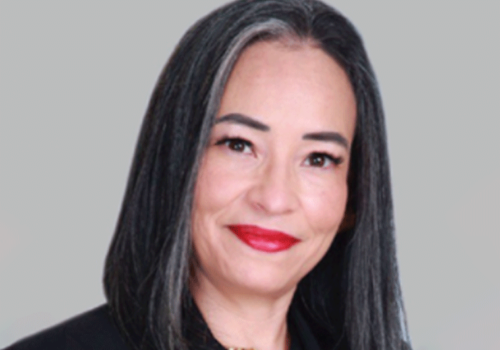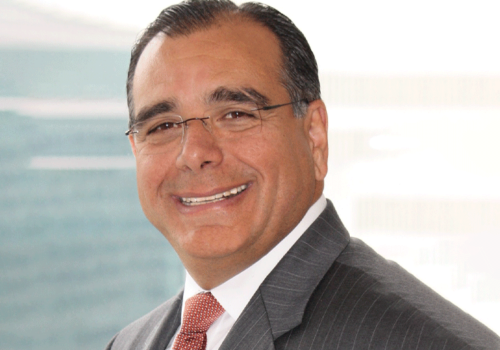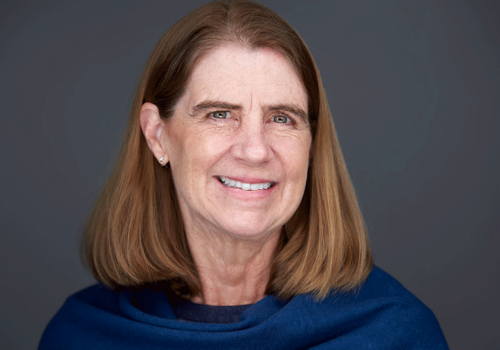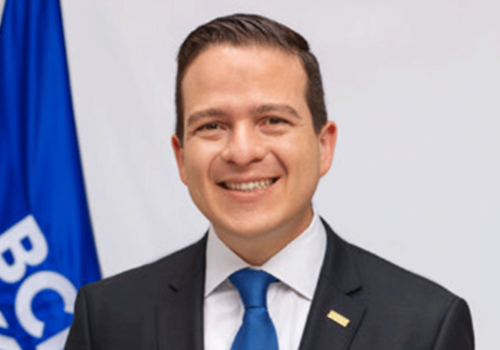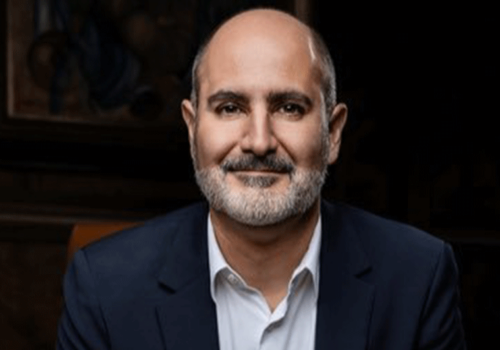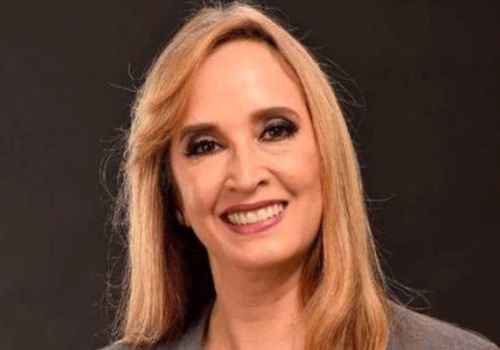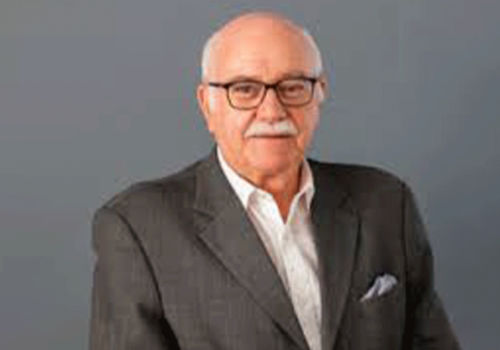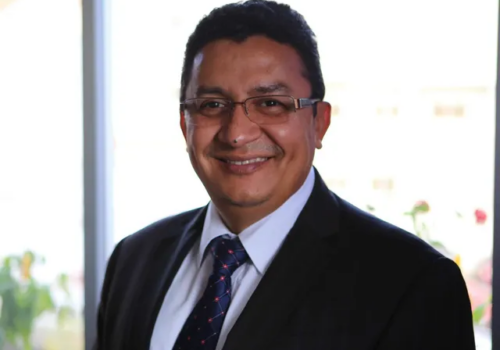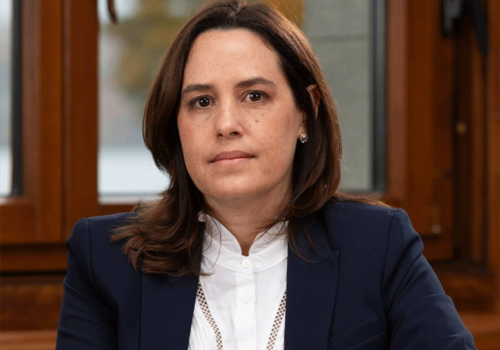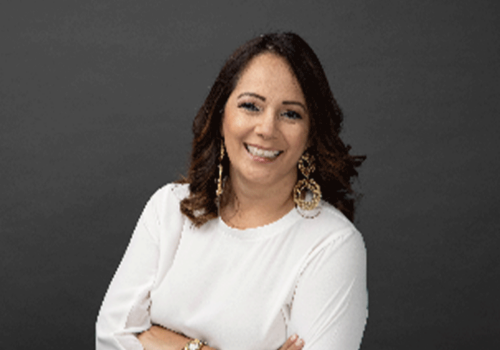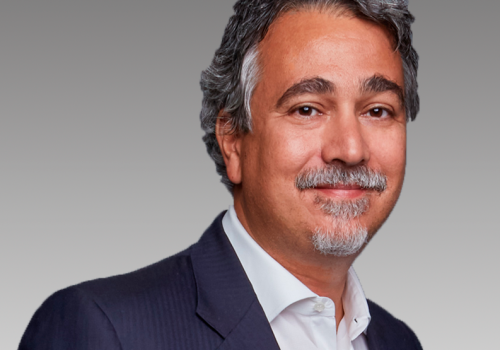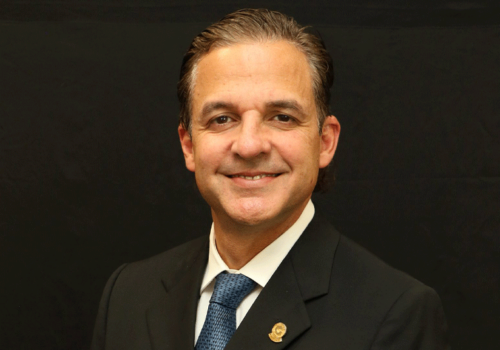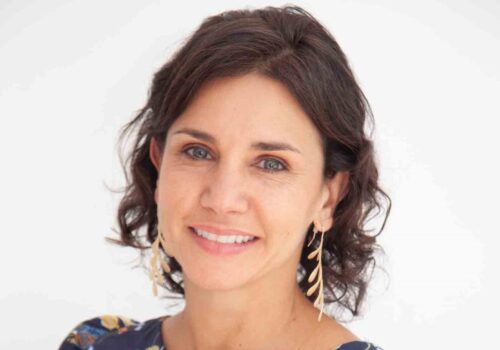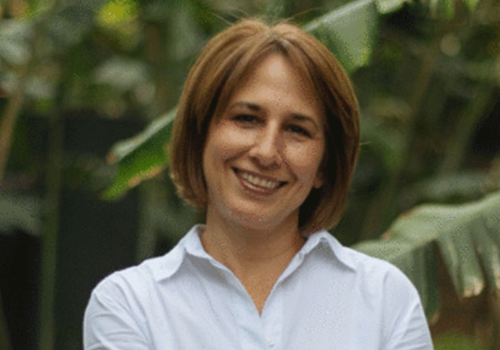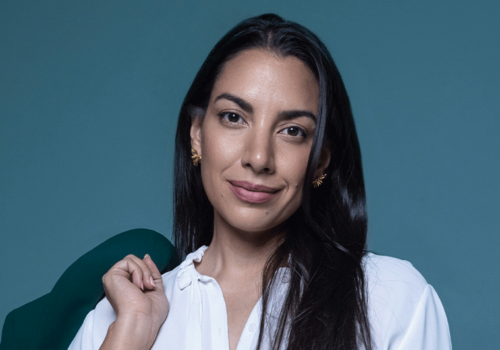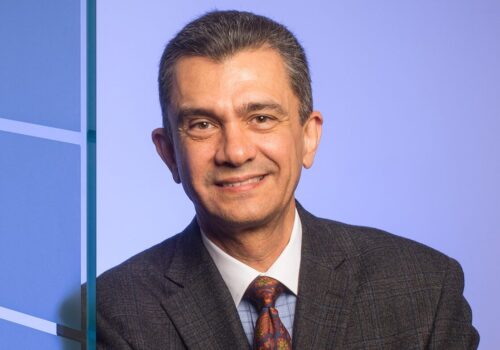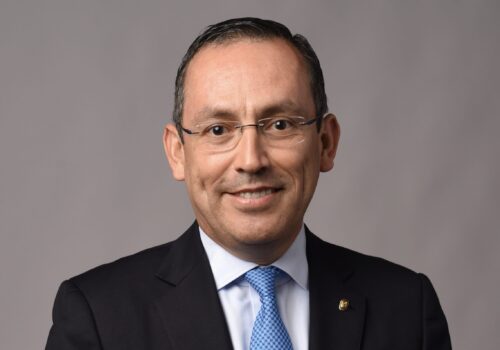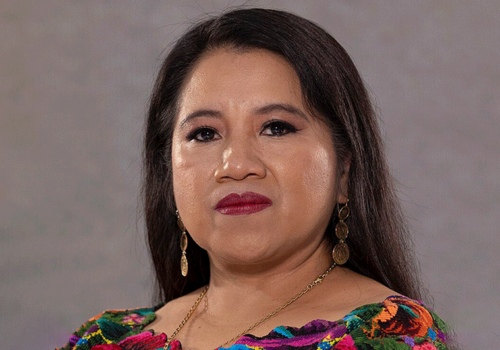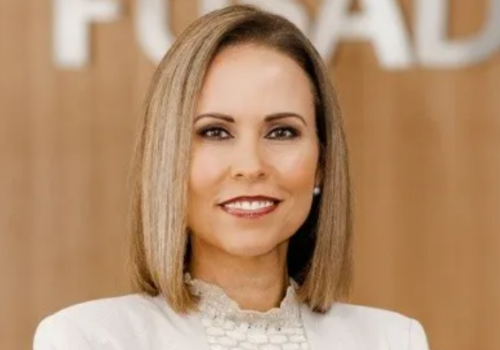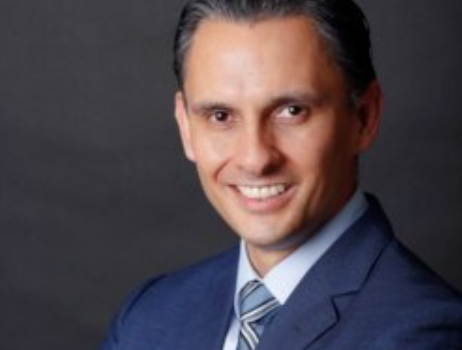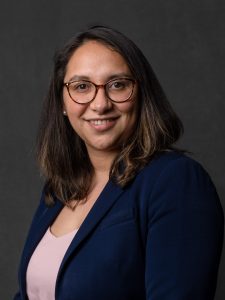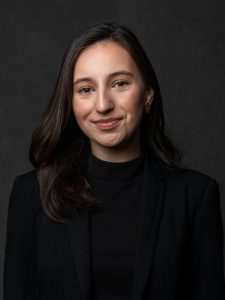The Atlantic Council’s Central America Task Force is a nonpartisan, multinational, and multi-sectoral group tasked to inform, provide buy-in, and build consensus for action-oriented policy recommendations for anti-corruption efforts that can unlock economic opportunities and investment. Through timely expert insights, it advances whole-of-society solutions with broad support in El Salvador, Guatemala, Honduras, and the United States to address the most challenging policy issues affecting the region, while also promoting US interests in Latin America and the Caribbean (LAC).
We are proud to build on the work of the Atlantic Council’s 2017 Northern Triangle Security and Economic Opportunity Task Force and 2021 Northern Triangle Advisory Group. Both groups laid the groundwork for strengthened US-Central America cooperation to accelerate regional economic prosperity, mitigate corruption, and reduce social instability for a modernized bilateral agenda.
Key areas of focus
The Task Force will prioritize three areas of focus, each of which is key to the future of US-Central America relations and to US interests across the region more broadly:
Enhancing private sector confidence and investment
Enhancing private sector confidence and investment is vital for economic development. When businesses trust the integrity and stability of local institutions, they are more likely to invest and expand their operations. In Guatemala and Honduras, increasing confidence in the government’s commitment to combat corruption can attract both domestic and international investors, fostering economic growth and creating new employment opportunities. A trustworthy business environment is a key driver of economic progress and innovation.
Promoting anti-corruption measures
Promoting anti-corruption measures and policy recommendations is essential for building fair and effective governance. Corruption undermines public trust and hinders economic development by creating an unpredictable business climate. In the context of Guatemala and Honduras, strong anti-corruption policies can pave the way for improved governance, increased foreign investment, and sustainable economic development. By addressing corruption, these countries can create a more equitable society and lay the foundation for long-term prosperity.
Fostering inclusive economic growth and prosperity
Fostering inclusive economic growth and prosperity is crucial for creating stable and thriving societies. In Guatemala and Honduras, addressing corruption and building a business-friendly environment can unlock significant investment opportunities, leading to job creation and sustainable development. By promoting transparency and accountability, these efforts help ensure that economic benefits are widely shared, reducing poverty and enhancing the quality of life for all citizens.
Publications
Explore through more insights and analyses from the Council on Central America.
Co-chairs
Members
About the members
Carlos Amador
President, Economic and Social Council of Guatemala (CES)
Carlos Amador is the president of Guatemala’s Economic and Social Council (CES), a state institution that brings together labor unions, cooperatives, and the private sector to provide social and economic policy recommendations to the state. Prior to CES, Amador was president of Comité Coordinador de Asociaciones Agrícolas, Comerciales, Industriales y Financieras (CACIF), a leading private sector organization in Guatemala. Amador has a professional background in the information and technology industry.
María Eugenia Brizuela de Ávila
Former Minister of Foreign Affairs, Republic of El Salvador
Nonresident Senior Fellow, Adrienne Arsht Latin America Center, Atlantic Council
María Eugenia Brizuela de Ávila is a nonresident senior fellow with the Atlantic Council’s Adrienne Arsht Latin America Center and a former minister of foreign affairs for the Republic of El Salvador. Brizuela de Ávila started her career with her family’s business, La Auxiliadora Funeral Home, eventually becoming chief executive officer and president. She founded Internacional de Seguros in 1997, becoming the first woman president of an insurance company in El Salvador. From 1999 to 2004, she was the first woman to be designated minister of foreign affairs of El Salvador. In 2004, she was elected the first woman president of a private bank in El Salvador. When Banco Salvadoreño forced an alliance with Banistmo, the biggest regional bank, she was elected its chief executive officer.
She was corporate sustainability head for HSBC Latin America until from 2007 to 2015. Brizuela de Ávila currently leads Inversiones Vision, her executive coaching and consulting firm in El Salvador. She serves on the board of several nonprofits, such as the University of Miami External Advisory Board on Latin America, and as nonexecutive director on business boards, including the Davivienda Financial Conglomerate in El Salvador and Honduras. Brizuela de Ávila has an academic background in art, insurance (at the Insurance Institute of Switzerland), and law (at Universidad Dr. Jose Matias Delgado). She attained an MBA from the Instituto Centroamericano de Administración de Empresas (INCAE) Business School and a postgraduate degree in sustainable business from the University of Cambridge. She taught at two universities in El Salvador and lectured at INCAE Business School in Costa Rica.
Ricardo Castaneda Ancheta
Senior Economist and Country Coordinator for El Salvador and Honduras, Instituto Centroamericano de Estudios Fiscales (ICEFI)
Ricardo Castaneda is a Salvadoran economist who currently works as senior economist and country coordinator for El Salvador and Honduras at the Central American Institute for Fiscal Research (ICEFI). He is a university professor and author of multiple research publications on fiscal policy. Castaneda has coordinated studies on investments in rural development, as well as combating poverty and inequality in Central America. He coordinated the Oversight Committee and Citizen Monitoring of the Emergency, Recovery, and Economic Reconstruction Fund in El Salvador.
Gabriela Castellanos
President, Consejo Nacional Anticorrupción (CNA)
Since 2013, Gabriela Castellanos has worked as executive director at the National Anticorruption Council (CNA), a civil society organization in Honduras dedicated to studying, dissuading, denouncing, and combating corruption. During her management, the CNA became the first civil society organization in Honduras to obtain ISO 9001:2015 certification. Castellanos is a lawyer with studies in criminal law, human rights, social coexistence, and nonprofit law. She has been recognized by the United States Department of State as a 2021 Anti-Corruption Champion for her work in preventing, denouncing, and fighting corruption in Honduras.
Juan José Daboub
President, HUGE Business and Investment Council
Former Managing Director, World Bank
Former Minister of Finance and Chief of Staff to the President, Republic of El Salvador
Juan José Daboub is the president of HUGE (Honduras, United States, Guatemala, El Salvador) Business and Investment Council, chairman and CEO of the Daboub Partnership, and the founding chief executive officer of the Global Adaptation Institute. He is a member of several boards of directors and advisory boards of both public and private industries and nonprofits in the United States, Europe, the Middle East, and Latin America, including two special purpose acquisition companies and a Fortune 500 company.
As managing director of the World Bank from 2006 to 2010, Daboub oversaw operations in 110 countries in Africa, the Middle East, East Asia, and Latin America. Prior to the World Bank, Daboub led the expansion of his family-owned businesses and worked with nonprofit organizations on public policies to promote liberty, stability, and growth throughout Latin America. From 1999 to 2004, he served concurrently as El Salvador’s minister of finance and as chief of staff to the president. In these roles, Daboub worked on securing and sustaining El Salvador’s investment grade rating, dollarizing the economy, and completing a free trade agreement with the United States.
Daboub’s career began in the private sector, where he led his family-owned businesses for nearly a decade before joining the Board of CEL, El Salvador’s electric utility company, and presiding over El Salvador’s electric distribution companies. He was named president of ANTEL, the state-owned telecommunications company, which he restructured and privatized. Daboub holds a bachelor of science, master of science, and a PhD in industrial engineering from North Carolina State University.
Abby Daniell
Director, Latin America, Canada and Caribbean Public Sector, Amazon Web Services
Abby Daniell is director, Latin America, Canada and Caribbean public sector at Amazon Web Services. Daniell is the executive responsible for implementing education, workforce development, diversity and inclusion, disaster prevention, cybersecurity, and other programs in the Latin American, Canadian, and Caribbean markets.
With more than twenty-five years of global private and public sector business experience, Daniell is quoted regularly in the international press and speaks at events on topics including cloud technologies, education, innovation, and workforce development. She previously worked as the commercial director at the US Embassy in Costa Rica, where she formed part of the management team and assisted US companies doing business in Latin America. Before joining the US embassy, Daniell was the associate publisher of the Tico Times, which she represented at the Inter-American Press Association. She lived and worked in Costa Rica for two decades after working on Capitol Hill as the communications director for a US representative from Washington state.
She holds an MBA from the George Washington University School of Business in Washington, DC, and a BA in political science from the University of Washington in Seattle. She has served on several nonprofit boards of directors, including the Costa Rican North America Cultural Center.
María Antonieta Del Cid de Bonilla
Dean of the Faculty of Economics and Business Science, Universidad Rafael Landivar;
Former President, Bank of Guatemala
Former Minister of Finance, Republic of Guatemala
María Antonieta Del Cid is the dean of the Faculty of Economics and Business Science at Universidad Rafael Landivar. She represented Central America at the International Monetary Fund (IMF) board from 1999 to 2000 and from 2017 to 2019. She also worked as a resident expert in central banking at the IMF Regional Technical Assistance Center from 2013 to 2017. She served as president of Banco de Guatemala and the Monetary Board from 2006 to 2010, and as Guatemala’s minister of finance from 2004 to 2006. She was executive director for Central America and Belize at the Inter-American Development Bank from 1996 to 1999. Del Cid serves on several boards in both the public and private sector, including Banco Agromercantil and Friendship Bridge.
Jaime Díaz Palacios
Executive Vice President, Central American Bank for Economic Integration
Jaime Díaz Palacios is the executive vice president of the Central American Bank for Economic Integration. Díaz Palacios has more than fifteen years of experience in economics and finance for development. He has worked as senior advisor to the executive director of the World Bank, executive director of the National Competitiveness Program, and economist at the Center for National Economic Research in Guatemala.
Díaz has extensive experience in leadership and academia as a member of the Central American Task Force at the Atlantic Council, a researcher in the Impact Investment Project at Harvard Business School, and research coordinator for the Global Entrepreneurship Monitor at Francisco Marroquín University (UFM). He has also taught at UFM, Rafael Landívar University, the London School of Economics and Political Science, and Harvard University. His holds a BSc in economics from UFM, an MSc in economics from the London School of Economics and Political Science, and an MA in public administration from Harvard University.
Jacqueline Foglia
Executive Director, Consejo Nacional de Inversiones (CNI)
Jacqueline Foglia Sandoval is the executive director of the National Investment Council, a public entity focused on the promotion and facilitation of private investment in Honduras. Foglia served as an officer in the Honduran Army and held senior management positions at Cargill Corporation and Tigo, a brand owned by media company Millicom. She was assistant secretary of state for tourism in Honduras and owned a consulting firm that provided guidance on international business, focusing on attracting foreign investment. Foglia participated in the negotiations for the Dominican Republic-Central America Free Trade Agreement. She also served as director of external relations at Zamorano University in Honduras and as university outreach officer at the American University of Afghanistan.
Foglia is a fellow of the third class of the Central America Leadership Initiative and a member of the Aspen Global Leadership Network. She is the first foreign female graduate of the US Military Academy at West Point. She earned a Fulbright scholarship to obtain a master’s degree in international relations and economics at the Johns Hopkins School of Advanced International Studies in Washington, DC. She has a certificate degree in trade policy and commercial law from Carleton University in Canada and an executive MBA from Universidad Francisco de Vitoria of Spain.
Roberto Gutiérrez
President, Fundación para el Desarrollo Integral de Programas Socio-económicos (FUNDAP)
President, Red Nacional de Grupos Gestores
Carlos Hernández
Co-founder and Executive Director, Association for a More Just Society
Carlos Hernández is the co-founder and executive director of the Association for a More Just Society, a chapter of Transparency International in Honduras, where he contributes to the design of public policy. Hernández has more than thirty-five years of experience working on social projects. In May 2019, he was appointed a member of the Commission of International Experts against Corruption in Ecuador. Since 2009, he has worked as a civil society leader in advocacy for the approval of draft laws and public policies, such as the Fundamental Law of Education, General Health Law, Reform to the High Court of Auditors, Law for the Regularization of Political Financing, General Law of the National Police, Law of the Police Career, and the Law for the Creation of the Directorate for the Evaluation of the Police Career. He has been an international speaker on transparency, anti-corruption, security, public policies, democracy, citizen participation, civic spaces, and development.
Jorge Ramón Hernández
Former Judge, Inter-American Commission on Human Rights (IACHR)
Former Ambassador of Honduras to the United States, Republic of Honduras
Former Vice President, Central Bank of Honduras
Jorge Ramón Hernández Alcerro is a former professor in the field of public international law and a retired career ambassador. He served twice as the Honduran ambassador to the United States, as was also the Honduran permanent representative at the United Nations and the Organization of American States. He is a former judge at the Inter-American Court of Human Rights and the Central American Court of Justice. He has also served as a co-agent at the International Court of Justice.
Hernández has served as executive president of a commercial bank in Honduras, vice-president of the Central Bank of Honduras, Central America’s executive director at the Inter-American Development Bank, and senior advisor at the World Bank. He was elected to the Honduran Congress four times and twice held positions in the Honduran cabinet. As minister of governance and justice, he championed local economic development, decentralization, land management, citizen participation, access to justice, women’s rights, combating violence against children, minorities’ rights, and migratory and administrative reforms. As minister general coordinator of government, he promoted national strategic planning, public institutional reforms, transparency, open government initiatives, monitoring and evaluation, institutional coordination and alignment, and efficiency of international cooperation. He was decorated by Brazil, Colombia, Taiwan, his hometown, and by two governments and the National Congress for distinguished service to his country. He holds a doctorate in international cooperation (cum laude) from the University of Nice, France.
Johanna Hill
Former Vice Minister of the Economy, Republic of El Salvador
Founding Partner, Central America Trade Consulting Group
Johanna Hill is a trade expert with more than twenty years of experience in international trade. She is a managing partner of the Central American Trade Consulting Group in El Salvador, where she advises governments, private sector clients, and international organizations on issues relating to the negotiation and implementation of international trade agreements. Hill served as a board member at Banco Azul de El Salvador and is an as executive director for El Salvador´s Telecommunications Chamber.
Hill has advised firms on rules of origin, antidumping, subsidies, and safeguard investigations, as well as trade-related labor and environmental issues. She has also worked on trade facilitation, market access issues, and cases relating to the Central American Customs Union, especially in areas such as tariff harmonization, customs procedures, and special customs regimes such as free trade zones. From 2007 to 2009, Hill served as vice minister of the economy of El Salvador. As vice minister, she was responsible for implementing El Salvador’s trade policy, including the negotiation of bilateral free trade agreements, multilateral trade negotiations at the World Trade Organization, and the promotion of the Central American Economic Integration process. Prior to her appointment as vice minister, Hill held different positions within the Ministry of Economy, including advisor to the Trade Policy Department, as well as deputy director and later director for trade policy. Hill is on the board of Vital Voices El Salvador and a member of FUSADESl.
Mey Hung
Corporate Affairs Manager for Guatemala and Honduras, Walmart
Mey Hung has managed Walmart’s corporate affairs in Honduras and Guatemala for more than fifteen years, in addition to being responsible for trade facilitation policies for the region. She leads the countries’ management of corporate, governmental, and community relationships, as well as corporate communications. Her duties include issues of shared value, inclusion and diversity, women empowerment, sustainability, and governance, as well as the development of small and medium-sized enterprises. From a very young age, she has volunteered in various social and professional positions.
Karim Lesina
Executive Vice President and Chief External Affairs Officer, Millicom
Karim Lesina is executive vice president and chief external affairs officer for Millicom. In this role, Lesina oversees the group’s government relations; regulatory affairs; corporate communications; and environmental, social, and governance functions. In this role, he focuses on developing and driving Millicom’s global engagement to support business objectives and is responsible for special situations and reputation strategies.
Before joining Millicom, Lesina was the senior vice president, international external and regulatory affairs at AT&T, where he directed the internal international and regulatory affairs teams, as well as the external and regulatory affairs teams across AT&T and its global affiliates. Prior to AT&T, Lesina worked for Intel as the government affairs manager for Europe, Africa, and the Middle East.
Lesina is an active member in several industries and community organizations, including his current role as co-chair of the Corporate Council of the Meridian International Center. He is a board member of IREX, the International Institute of Communications, the United States Telecommunication Training Institute. He is also a member of the GSMA Chief Policy & Regulatory Officer Group and Cogni. Born in Dakar, Senegal, Lesina is an Italian-Tunisian national and has a master’s degree in the economics of development from the Catholic University of Louvain-la-Neuve, Belgium.
Guillermo Montano
President, Asociación Guatemalteca de Exportadores (Agexport)
Founder, Transactel, Telus International, Dollar City, and Panamerican Food Company
Guillermo Montano is the president of the Guatemalan Association of Exporters (Agexport) and founder of Transactel, Telus International, Dollar City, and Panamerican Food Company. Montano is the founder and CEO of the first regional real estate investment trust, operating in eight countries in Latin America. He has founded, developed, and sold businesses in different industries, including business process outsourcing and retail. Montano serves as president of the Central American Chamber of Exporters and as a member of the board of Bancolombia. He previously served as president of United Way Guatemala. Montano has an MBA in entrepreneurship and a PhD in economics and political history.
Maria Liliana Mor
Director of Strategic Partnerships and Development, ProMujer
Maria Liliana Mor is the director of strategic partnerships and development at ProMujer, a nonprofit development organization advancing gender equality in Latin America. She fosters alliances and structures financial vehicles to promote women’s financial inclusion, impact investing, entrepreneurship, and health in the region.
Previously, she worked at the Education Division at the Inter-American Development Bank where she led the twenty-first century skills agenda. In this role, she focused on strengthening learning ecosystems to equip Latin American and Caribbean citizens with transferrable skills in partnership with public and private sector stakeholders. Mor worked at the Trust for the Americas-Organization of American States for twelve years, where she led the implementation of the innovation, open government, economic opportunities, and technology for social good programs in 21 countriesn Latin America and the Caribbean. In addition, Mor directed an institutional effort to adapt and mainstream gender and accessibility perspectives to all projects.
Mor is an international development specialist with experience developing partnerships with corporate social responsibilities and sustainability teams from multinational companies, government entities, and multilateral organizations to mainstream social impact development approaches to regional programs. Mor has seventeen years of experience in consulting, project management, and strategic practices on international development. She has experience working on information and communications technologies for development, innovation, and education programs focused on vulnerable communities, community-based development, humanitarian assistance, and the future of work. Mor’s previous experience includes the Inter-American Development Bank, the World Bank, and the Pan-American Health Organization. She holds a BA in government and foreign affairs from Universidad Externado de Colombia and an MA in public administration and international development management from American University.
Maria Pacheco
Founder and President, Wakami
Maria Pacheco is the founder and president of Wakami, a fashion accessories brand that specializes in building value chains from rural communities (especially rural women) to local, national, and international markets. Wakami’s methodologies have been transferred to other countries and served as a basis for a World Bank/Inter-American Development Bank loan for Guatemala, which aims to accelerate more than two hundred rural value chains in the country.
Pacheco is a fellow of the Aspen Institute’s Central American Leadership Initiative and is a co-founder of the Vital Voices Central American Network and its Guatemalan chapter. She is a Fulbright scholar from Cornell University.
Anne W. Patterson
Former Assistant Secretary of State for International Narcotics and Law Enforcement
Former US Ambassador to El Salvador, US Department of State
Anne W. Patterson was the assistant secretary for Near Eastern and North African Affairs at the Department of State from 2013 to 2017. She has been a member of the Dow Jones Special Committee since April 2018. She has served as US ambassador to Egypt, Pakistan, Colombia, and El Salvador. Patterson also served as assistant secretary of state for international narcotics and law enforcement affairs and deputy permanent representative to the United Nations. She is currently a senior fellow at the Jackson Institute for Global Affairs at Yale and a member of the Commission on National Defense Strategy.
Leonor A. Selva
Former Executive Director, Asociación Nacional de la Empresa Privada (ANEP)
Leonor Selva holds a Master of Public Policy from the Blavatnik School of Government at the University of Oxford and a B.A. in law from the Escuela Superior de Economía y Negocios (ESEN). In 2021, she became the first and youngest female Executive Director of the National Private Enterprise Association of El Salvador, the largest private sector association in the country, representing the interests and positions of over 50 business associations including commerce, industry, exports, agriculture, and others. She served a two-year mandate.
She is also the founder of a public policy and prospective analysis consulting firm and has worked for organizations such as UNICEF, UN, the International Commission of Jurists, governments from El Salvador and Panamá, as well as private corporations. She focuses on government engagement, policy design, institutional reform, regulatory issues, and social policies. In recent years, she has become an advocate for women´s empowerment and innovation for economic growth and development.
She is a Humphrey Fellow, focusing on nearshoring and the development of the semiconductor industry in the western hemisphere.
Salvador Stadthagen
Former Ambassador of Nicaragua to the United States, Republic of Nicaragua
Salvador Stadthagen is the International Republican Institute’s resident programs director in Mexico. He has more than three decades of experience working in diplomacy and international development and cooperation.
In 1990, Stadthagen entered the Foreign Service of the newly democratically-elected government in Nicaragua. While in the Foreign Service, Stadthagen served in Japan. He went on to serve as the Nicaraguan ambassador to Taiwan, secretary for international cooperation and economic relations, and deputy minister of foreign affairs. He concluded his diplomatic career in 2006 after serving concurrently as the Nicaraguan ambassador to the United States and to Canada.
Stadthagen founded and led the Education for Democracy program in Nicaragua from 1992 to 1995, which was funded by the National Endowment for Democracy and the United States Agency for International Development (USAID). He worked at Creative Associates International from 1987 to 1990, rejoining the company from 2008 to 2021 to lead USAID-funded violence prevention programs in Central America. He later headed Creative Associates’ Latin America and Caribbean strategy. Stadthagen has been a nonresident senior associate at the Center for Strategic and International Studies since 2021. He holds a BS in business administration from American University in Washington, DC, and a master’s degree in public administration/public policy from Harvard University.
Marlon Tábora
Former Ambassador of Honduras to the United States,Republic of Honduras
Marlon Tábora Muñoz is a former Honduran ambassador to the United States. Tábora has a diverse background in engineering, finance, economics, political science, and international development. He has held key leadership positions in various domestic and international organizations, including tenures as governor of the Central Bank of Honduras; minister and head of Honduras’s economic cabinet; senior advisor for Central America-Board of Directors at the International Monetary Fund; and executive director for Central America & Belize, vice President and corporate secretary at the Inter-American Development Bank. He has also worked as a senior executive in the private sector in Honduras, serving in senior management positions at Grupo Terra and Inversiones La Paz.
Currently, Tábora manages a private equity firm promoting investments for Central America and serves as an external board member in the financial sector in the Northern Triangle of Central America. He is an alumnus of the Harvard Business School, Wharton Business School, and the Stanford University Graduate School of Business. He also holds postgraduate degrees from the Saïd Business School at Oxford University, the London School of Economics and Political Science, and Georgetown University.
Aura Leticia Teleguario
Senior Specialist in Inter-Agency, Public, and Corporate Partnerships for Gender Equality, UN Women Guatemala
Former Minister of Labor and Social Welfare, Republic of Guatemala
Aura Leticia Teleguario is the senior specialist in interagency, public, and corporate partnerships for gender equality at UN Women Guatemala. Teleguario is a former Guatemalan minister of labor and social welfare, the first indigenous woman to hold this position. As labor minister, Teleguario prioritized the creation and implementation of Guatemala’s National Policy on Dignified Employment, the prevention and eradication of child labor, and reforming her country’s labor code to strengthen labor inspection. Teleguario managed Guatemala’s Cabinet of Indigenous Peoples and Interculturality.
Teleguario worked for twenty-two years for the United States Agency for International Development and the US Embassy in Guatemala as an advisor on indigenous peoples’ issues. She has supported several civil society organizations, including ProLideres and Movimiento de Mujeres Poderosas. She is a co-founder of the Intercultural Commission of the Foundation for the Development of Guatemala (FUNDESA). Teleguario serves on the board of directors of the Vital Voices chapter in Guatemala, the advisory board of Plan Internacional, and the Global Advisory Council of Save the Children. Teleguario led the process for the creation of the Indigenous Women’s Platform of Guatemala.
Teleguario was included in Forbes magazine’s list of the most powerful women in Central America in 2020 and 2021. She is a member of the Central American Leadership Initiative of the Aspen Institute and INCAE, as well as Georgetown University’s Innovation and Leadership in Government Program.
Teleguario has a BA and MBA from Francisco Marroquin and ESI School of Management, as well as a master’s in leadership in public management from the School of Government in Guatemala. She also has a postgraduate degree in multiculturalism, youth and gender from San Carlos University. She has an additional postgraduate degree in public leadership, economic opportunities, and human rights from Vital Voices in Washington, DC. Teleguario speaks Kaqchikel, Spanish, and English.
Claudia Umaña Araujo
Former President, Fundación Salvadoreña para el Desarrollo Económico y Social (FUSADES)
Claudia Umaña was the first woman president of Fundación Salvadoreña para el Desarrollo Económico y Social, a Salvadoran think tank. She is also the founder and former president of the nongovernmental organization Democracy—Transparency—Justice. Umaña was previously a public servant for almost a decade, working as the director of trade and commercial policy of the Ministry of Economy of El Salvador, with the rank of special ambassador for trade negotiations. In this role, she helped coordinate the negotiations of the Dominican Republic-Central America Free Trade Agreement. In 2021, she was recognized as a Champion for Democracy and Governance by the Atlantic Council. Umaña currently promotes dialogue and women empowerment.
Juan Carlos Zapata
Executive Director, Foundation for the Development of Guatemala (FUNDESA)
Juan Carlos Zapata is the executive director of the Foundation for the Development of Guatemala (FUNDESA). He leads numerous economic and social development programs focused on increasing competitiveness and productivity, through public policy initiatives financed by private sector companies as well as the Inter-American Development Bank, United States Agency for International Development, and GIZ. Zapata has also worked for the Caribbean Council, a London-based think tank, and Sheraton Suites in Key West. He serves on multiple working groups of the private sector and on the advisory board for Global Development Advisors and PomonaAgTech. Zapata is a columnist for the newspaper Prensa Libre.
Coordinators
About the program

The Adrienne Arsht Latin America Center broadens understanding of regional transformations and delivers constructive, results-oriented solutions to inform how the public and private sectors can advance hemispheric prosperity.
